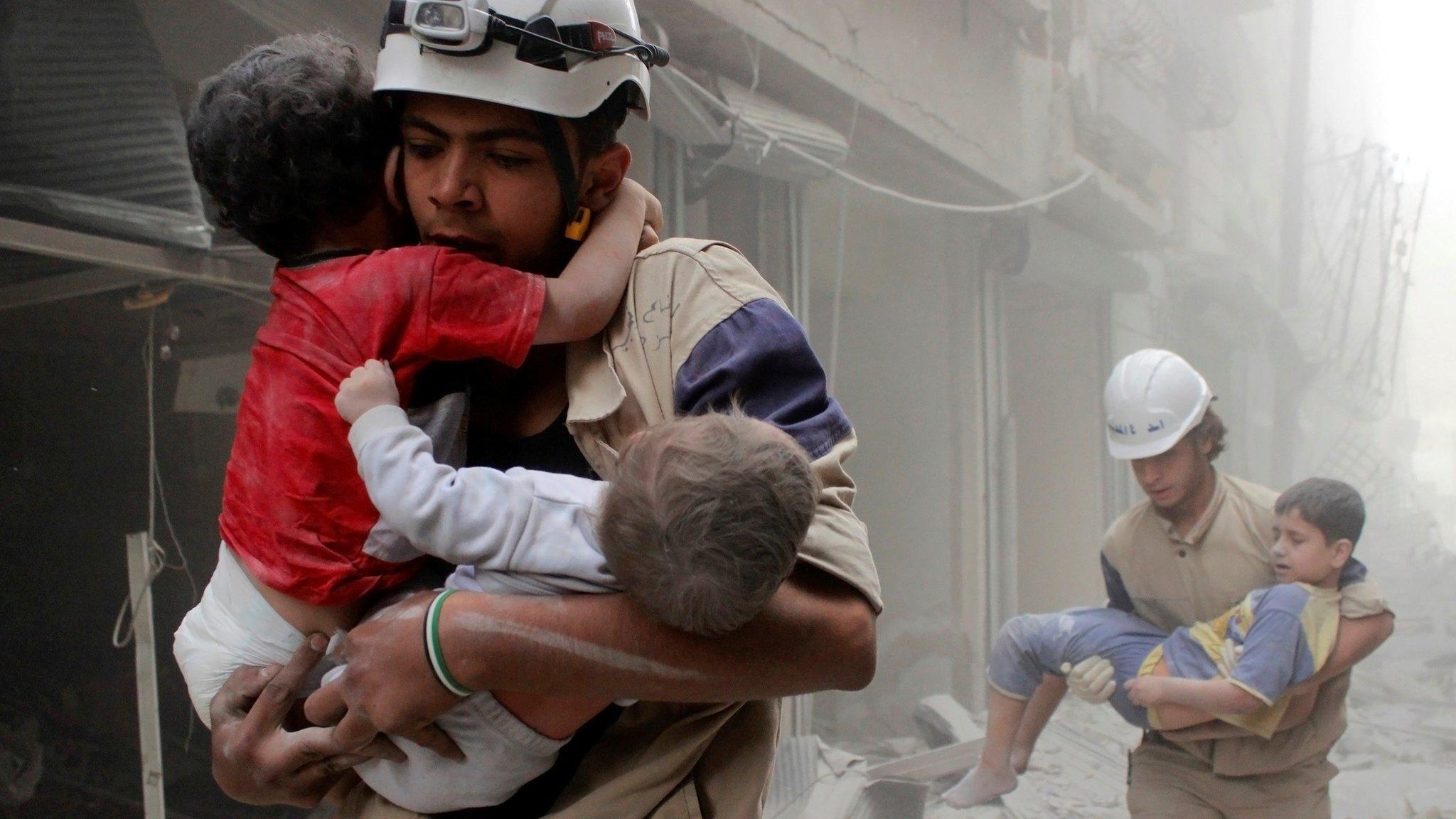Russian ambassador's murder a bid to derail ties, says press
- Published
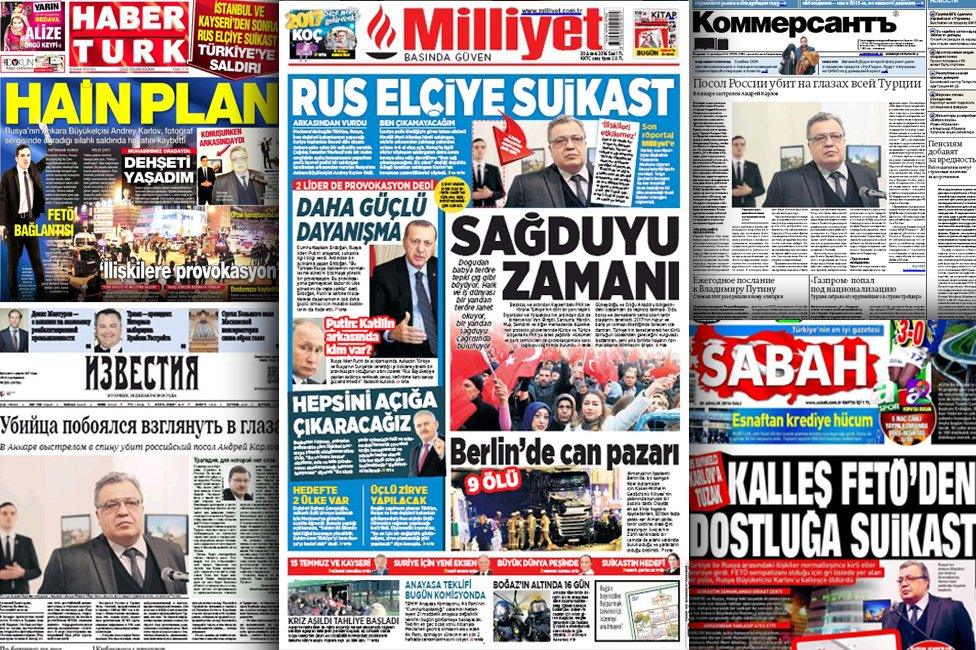
Front pages in both Russia and Turkey have been dominated by the killing of Russian ambassador Andrei Karlov in Ankara.
The Russian press mainly concludes the assassination was aimed at derailing relations that only recently got back on track after a diplomatic crisis triggered by Turkey's shooting down of a Russian jet near the Syrian border last year.
Turkey's pro-government papers accuse the Gulen movement - blamed for a failed coup in July - of being behind the attack, though at least one independent paper has its doubts.
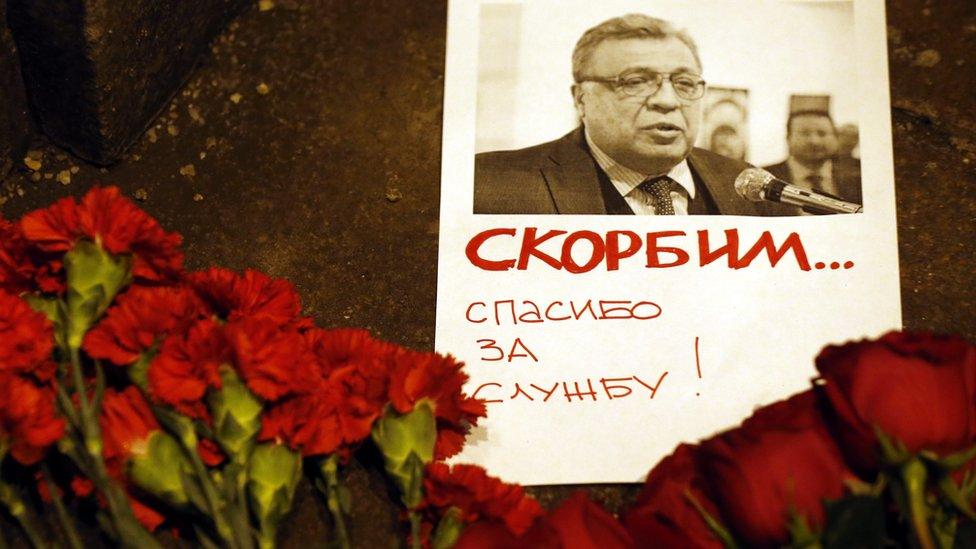
This tribute to Andrei Karlov outside the Russian foreign ministry in Moscow reads "We are mourning"
For pundit Andrei Sushentsov, quoted by Russian businesss daily RBC, the ambassador's killing served the interests of "those willing to disrupt the fragile process of Russian-Turkish rapprochement".
His view is echoed by influential daily Kommersant. It suggests the attack was aimed at "disrupting the normalisation of Russian-Turkish relations in general and the Turkish foreign minister's visit to Moscow in particular".
'Syrian connection'
Several papers make a link between the killing and Russia's involvement in Syria.
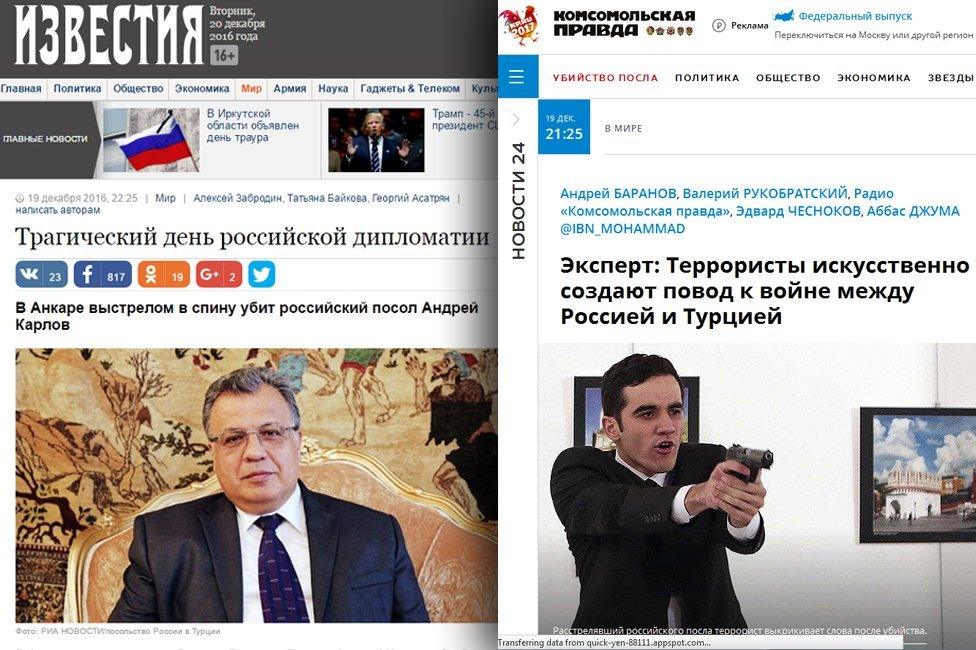
Komsomolskaya Pravda's (R) headline suggests that the killing might "artificially create a cause for war between Turkey and Russia
Russia's pro-government Izvestia quotes Alexei Pushkov of the Russian Federation Council's defence and security committee as saying the assassination was "prompted by an extremely hostile environment which has taken shape in Turkey due to the attitude of some political circles towards the situation in Aleppo".
And pundit Mikhail Friben says in pro-Kremlin tabloid Komsomolskaya Pravda there is "clearly some third force behind it which seeks to deflect Moscow and Ankara from liquidating terrorists in Syria".
'Dirty tricks'
Turkey's newspapers point out that the presidents of both countries described the shooting as an act of provocation.
Centrist Milliyet says the aim was "to deal a blow to Russian-Turkish relations, which are, even though not fully, considerably improved after the plane crisis."
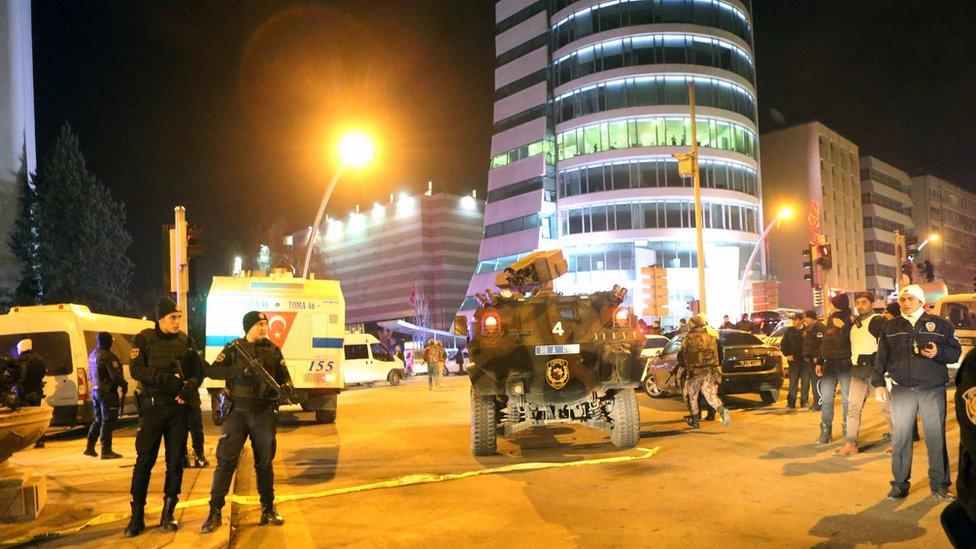
The ambassador was shot at an art exhibition in Ankara
Most pro-government papers, such as Sabah, Star and Yeni Safak, suggest that the Gulen movement had a hand in the attack.
Sabah says that ''with Turkey-Russia relations being normalised, dirty tricks were resorted to''.
However, centre-right Hurriyet, external daily is suspicious that the policeman who killed the ambassador was himself shot dead by Turkish security forces. His death means it will now be much more difficult to establish who was behind the attack.
"If the attacker had been captured unharmed, or at least wounded, it would have been much easier to get information from him during the interrogation and prosecution," it writes.
That should be investigated as much as the assassination, it says.
BBC Monitoring, external reports and analyses news from TV, radio, web and print media around the world. You can follow BBC Monitoring on Twitter , externaland Facebook, external.
- Published20 December 2016
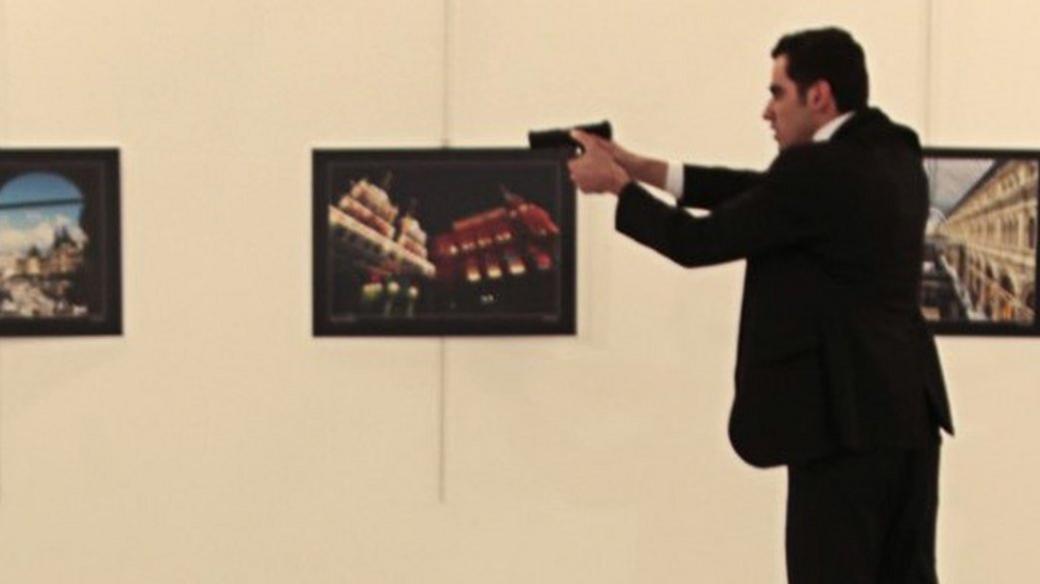
- Published19 December 2016
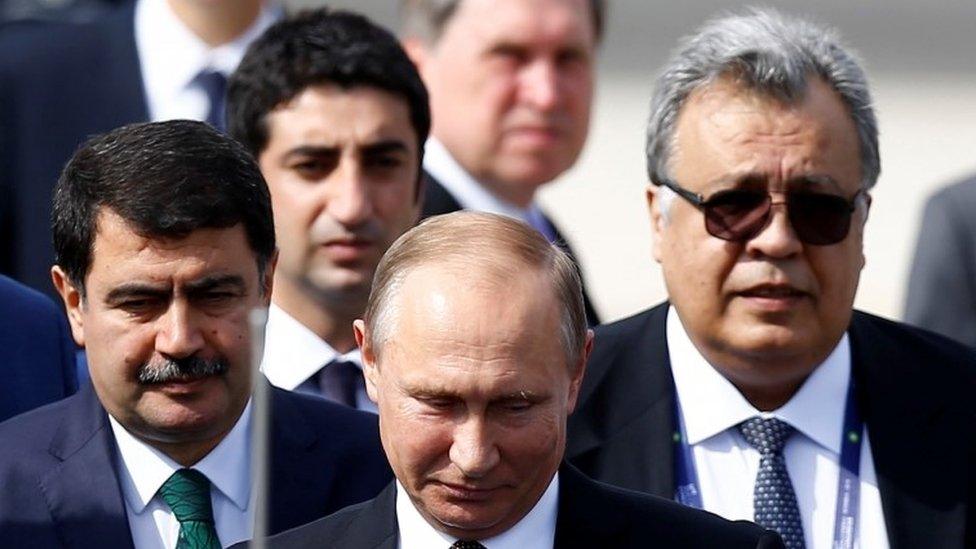
- Published23 December 2016
